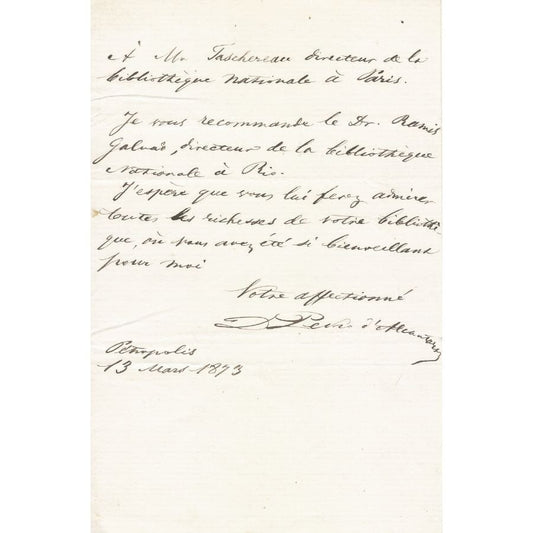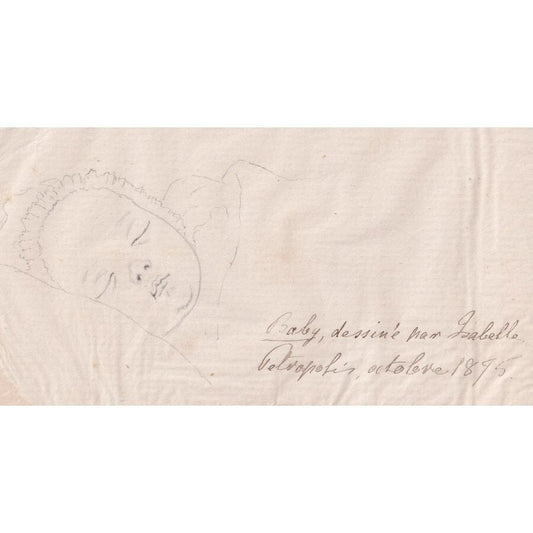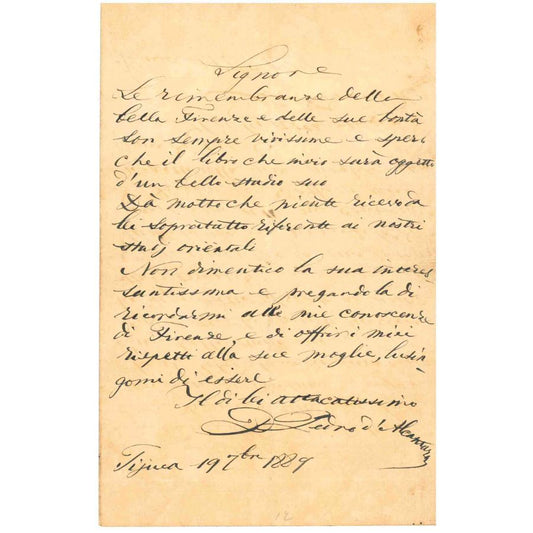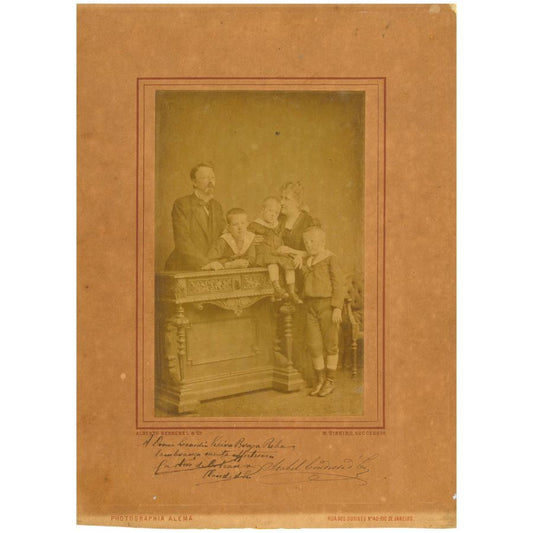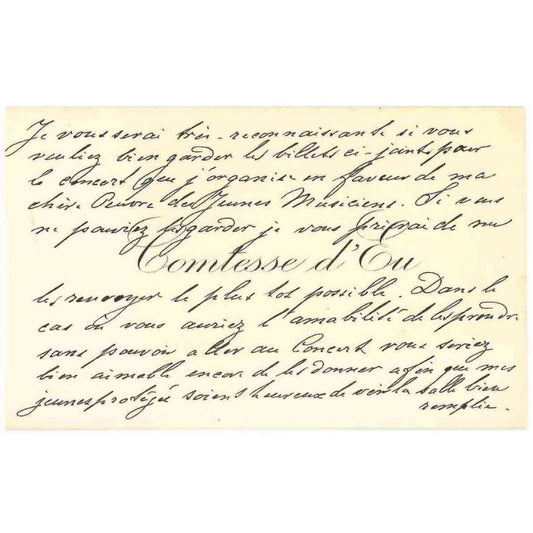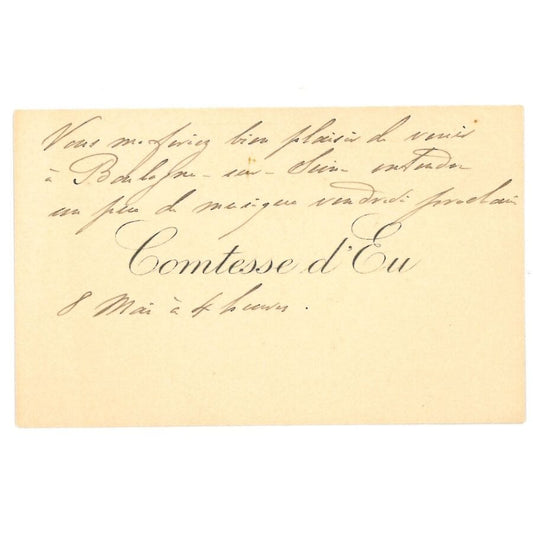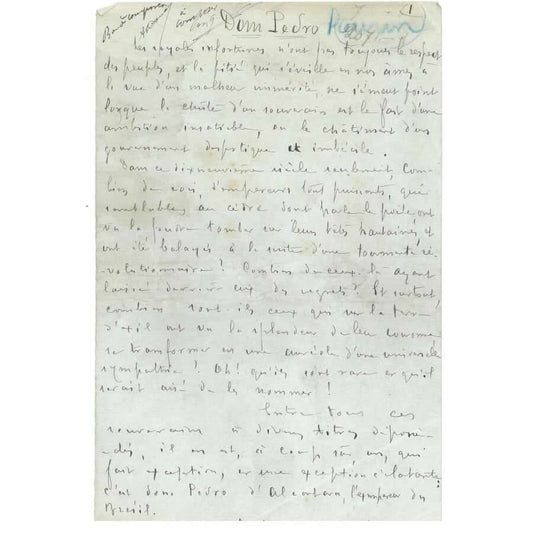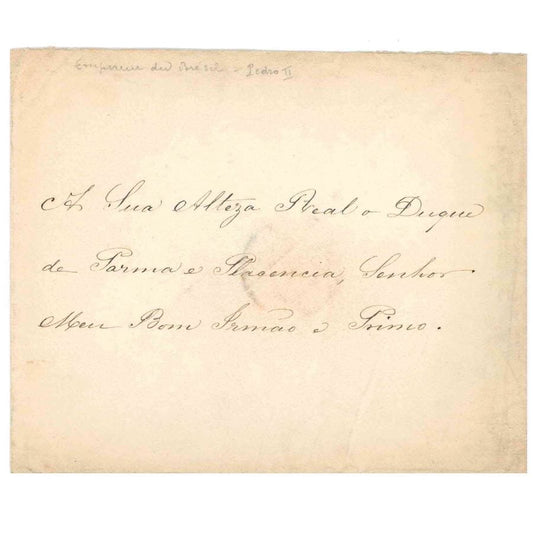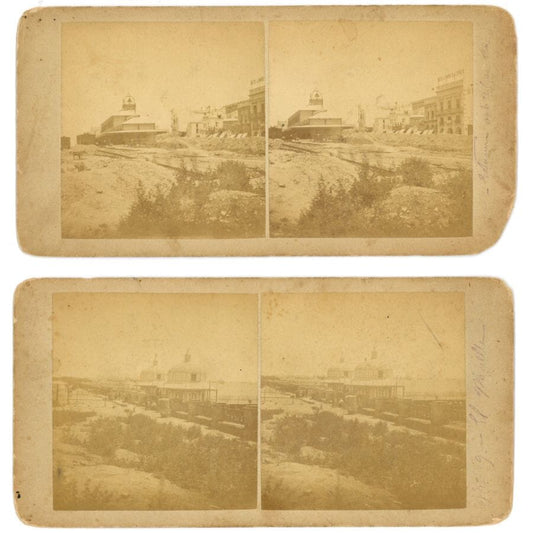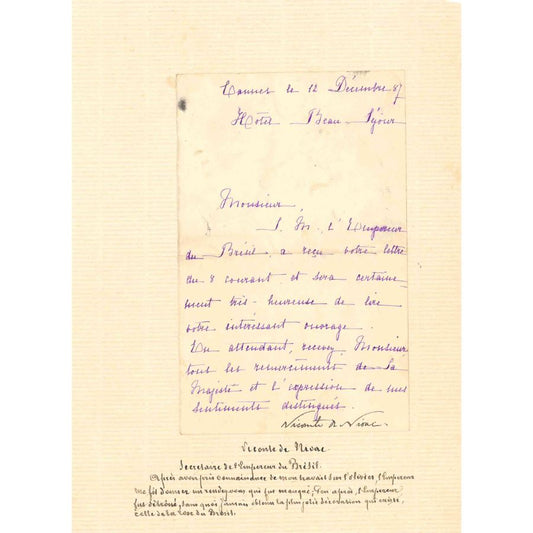Coleção: Império
Documentos relacionados ao Império Brasileiro podem, sob certas condições, ser adquiridos com recursos incentivados por meio da Lei Rouanet.
A Lei Rouanet permite viabilizar a aquisição, preservação, estudo e difusão de conjuntos documentais excepcionais com o apoio de recursos privados incentivados. Empresas e pessoas físicas podem financiar essas ações e abater até 100% do valor investido do imposto de renda devido — uma forma legal, transparente e estratégica de apoiar a cultura. A Glórias coordena todas as etapas do projeto — da curadoria à formalização junto ao Ministério da Cultura — e, ao final, os documentos adquiridos são oficialmente doados pelo patrocinador à instituição pública beneficiária, como um museu, onde passam a integrar seu acervo permanente, garantindo preservação, acesso público e reconhecimento institucional ao doador.
Você está interessado? Entre em contato conosco.
-
Correspondência científica de Dom Pedro II (1870s, 1880s)
Preço normal R$ 40.000,00 BRLPreço normalPreço unitário / por5x de R$ 8.000,00 sem juros
-
Desenho da Princesa Isabel (1875)
Preço normal R$ 30.000,00 BRLPreço normalPreço unitário / por5x de R$ 6.000,00 sem juros
-
Carta manuscrita de Dom Pedro II (1838-1839)
Preço normal R$ 25.000,00 BRLPreço normalPreço unitário / por5x de R$ 5.000,00 sem juros
-
Carta manuscrita de Dom Pedro II (1889)
Preço normal R$ 15.000,00 BRLPreço normalPreço unitário / por5x de R$ 3.000,00 sem juros
-
Carta manuscrita de Joaquim Nabuco (1906)
Preço normal R$ 12.000,00 BRLPreço normalPreço unitário / por5x de R$ 2.400,00 sem juros
-
Carta manuscrita de Dom Pedro II (1871)
Preço normal R$ 12.000,00 BRLPreço normalPreço unitário / por5x de R$ 2.400,00 sem juros
-
Retrato assinado por Dom Pedro II e por Teresa Cristina
Preço normal R$ 12.000,00 BRLPreço normalPreço unitário / por5x de R$ 2.400,00 sem juros
-
Grande retrato autografado da Princesa Isabel, do Conde d´Eu e dos seus filhos (1884)
Preço normal R$ 10.000,00 BRLPreço normalPreço unitário / por5x de R$ 2.000,00 sem juros
-
Retrato assinado pela Princesa Isabel e seu filho Pedro
Preço normal R$ 8.000,00 BRLPreço normalPreço unitário / por5x de R$ 1.600,00 sem juros
-
Carta assinada por Dom Pedro II (1870)
Preço normal R$ 7.500,00 BRLPreço normalPreço unitário / por5x de R$ 1.500,00 sem juros
-
Três cartas históricas recebidas pela Princesa Isabel (1888)
Preço normal R$ 6.000,00 BRLPreço normalPreço unitário / por5x de R$ 1.200,00 sem juros
-
Cartão de visita e texto da Princesa Isabel, Condessa d´Eu (anos 1900)
Preço normal R$ 4.500,00 BRLPreço normalPreço unitário / por5x de R$ 900,00 sem juros
-
Carta manuscrita da Condessa de Barral (1855)
Preço normal R$ 4.000,00 BRLPreço normalPreço unitário / por5x de R$ 800,00 sem juros
-
Cartão de visita com um texto da Princesa Isabel
Preço normal R$ 3.500,00 BRLPreço normalPreço unitário / por5x de R$ 700,00 sem juros
-
Carta manuscrita da Princesa Isabel (1879)
Preço normal R$ 3.000,00 BRLPreço normalPreço unitário / por5x de R$ 600,00 sem juros
-
Retrato assinado da Princesa Isabel
Preço normal R$ 2.500,00 BRLPreço normalPreço unitário / por5x de R$ 500,00 sem juros
-
Necrologia de Dom Pedro II (1891)
Preço normal R$ 2.500,00 BRLPreço normalPreço unitário / por5x de R$ 500,00 sem juros
-
Retrato assinado por Gastão d’Orléans, Conde d’Eu
Preço normal R$ 2.000,00 BRLPreço normalPreço unitário / por5x de R$ 400,00 sem juros
-
Retrato assinado do príncipe Luiz de Orléans e Bragança
Preço normal R$ 1.500,00 BRLPreço normalPreço unitário / por5x de R$ 300,00 sem juros
-
Envelope escrito por Dom Pedro II
Preço normal R$ 1.500,00 BRLPreço normalPreço unitário / por5x de R$ 300,00 sem juros
-
Fotografias de Christiano Junior (1871)
Preço normal R$ 1.000,00 BRLPreço normalPreço unitário / por5x de R$ 200,00 sem juros
-
Duas fotografias originais de George Leuzinger (1860s, 1870s)
Preço normal R$ 1.000,00 BRLPreço normalPreço unitário / por5x de R$ 200,00 sem juros
-
Carta em nome de Dom Pedro II (1887)
Preço normal R$ 800,00 BRLPreço normalPreço unitário / por5x de R$ 160,00 sem juros
-
Fotografia original do estúdio Christiano Jr. & Pacheco (1871)
Preço normal R$ 600,00 BRLPreço normalPreço unitário / por5x de R$ 120,00 sem juros
Assine nossa newsletter
Achamos tesouros todo mês. Seja o primeiro a saber.

